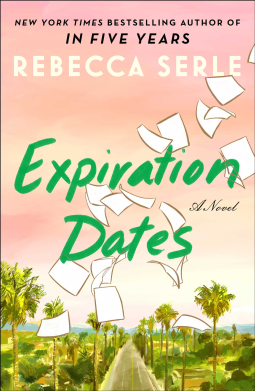 Thanks to partners NetGalley and Atria Books for the digital ARC of Rebecca Serle’s Expiration Dates. The book will be published on Tuesday! I haven’t read a book by Rebecca Serle that I haven’t loved, and her new release, Expiration Dates, continues the trend. The novel centers on Daphne Bell who, since she was a child, has received strange messages from an unknown force. When she meets someone she’s going to date, pieces of paper with the person’s name and the duration of their romantic relationship appear. These strange manifestations have, of course, some consequences. She doesn’t receive a paper? That’s not someone she’s going to date. Something goes wrong right around the relationship’s “expiration date”? Well, that explains it . . . and the relationship is over with no struggle and no fuss from Daphne. And then, Daphne receives a note about Jake, and there is no expiration date. It’s a blank paper. What does that mean? Daphne tries to work through the implications with her best friend Hugo—their romance lasted only a few months, but their attachment continued—but they proceed with the assumption that this means an unending relationship. Right? Discussing further would get into spoiler territory, so I’ll just say (again!) that I absolutely loved this book. Serle excels at these books with slightly magical premises, stories that are nevertheless grounded in reality and in character. Her situations are always intriguing, and watching how Daphne, in Expiration Dates, navigates having her future foretold is so thought provoking in its consideration of free will and choice. Daphne is a compelling protagonist whose life has been shaped by circumstances outside her control, and I so appreciated the complexity of considering the implications of such circumstances for all of us. I tore through this one—pick it up tomorrow!
0 Comments
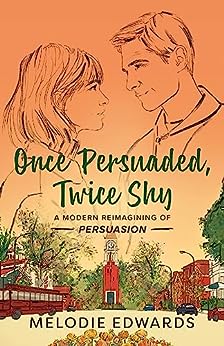 Thanks to partners NetGalley and Berkley for the digital ARC of Melodie Edwards’s Once Persuaded, Twice Shy: A Modern Reimagining of Persuasion. The book will be published on February 27! Most of my followers know that I spent 2022 and 2023 on a Jane Austen journey: I led buddy reads of the author’s six major novels during the first year (two months per novel) and then spent 2023 reading the author’s short works, diving into a biography, and then devoting our buddy reads to retellings of Austen’s books. Once Persuaded, Twice Shy ranks with the best of those retellings. Melodie Edwards begins her novel with a note to the reader about the way she approached this modern reenvisioning of Anne Elliott’s story, about the challenges she faced because of modern conventions in comparison to those of Austen’s time. She navigated those beautifully, resulting in a compelling second-chance romance filled with humor (there’s a recurrent goose wreaking havoc in the town). Anne Elliott has no work-life balance: she’s all work and obligation. After her dear mother convinced her, nearly a decade ago, to break up with Ben Wentworth because he wasn’t reliable and wouldn’t be a strong, supportive partner, Anne devoted herself to caring for her mother, soon stricken with cancer, and replacing her. She stepped in for her mother at work, as town councilor and executive director of her theater company, and at home, where she took care of her impulsive, irresponsible father and beautiful, selfish sister. She doesn’t date and has few friends, outside of Vidya, who works at the theater, and her assistant, Emmie, who is more mentee than friend. Then, a new older couple moves to Niagara-on-the-Lake, purchasing Kellynch Winery, which used to belong to Anne’s family. And with them comes (of course) their nephew, Ben Wentworth, now a successful, conservative, straight-laced businessman. Whether you’ve read Persuasion or not, I imagine you can see where this is going. What sets the story apart for me is the way Edwards takes the notes of Persuasion and recasts them—Wentworth’s romance with a young actress at the theater, Anne’s determination to show that she moved on from Ben, the extravagant carelessness of Anne’s family: it’s all there. It resonated for me, but I suspect it will also resonate even for those who have never read Austen because the story’s characters are so beautifully realized. This is Edwards’s second novel—she also wrote Jane & Edward: A Modern Reimagining of Jane Eyre—and the strength of Once Persuaded, Twice Shy means that Jane & Edward is now waiting on my TBR. 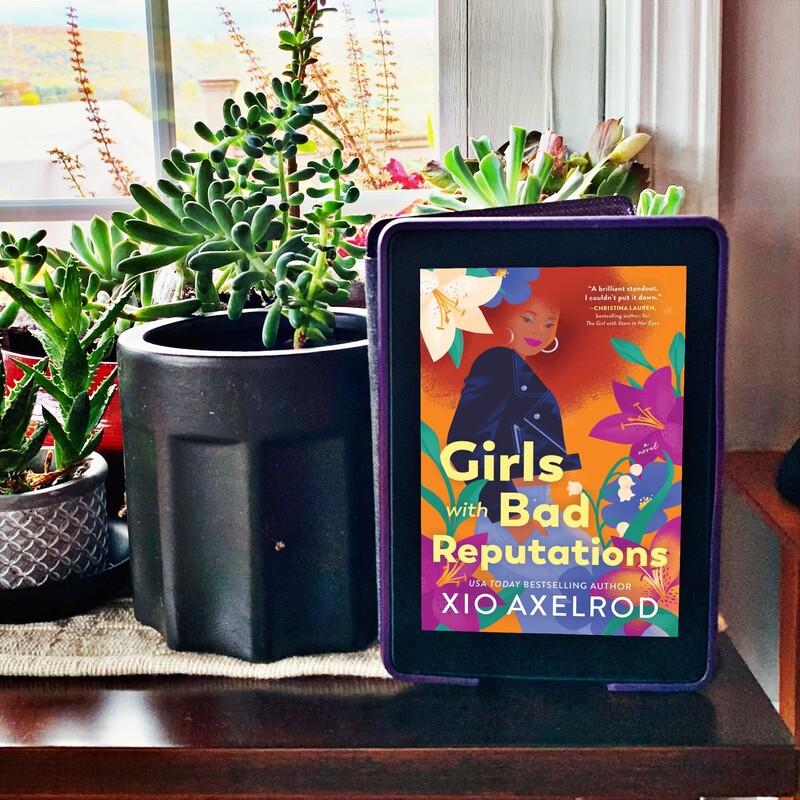 Thanks to @sourcebookscasa for the digital galley of Xio Axelrod's Girls with Bad Reputations, which will be published on Tuesday! The second in The Lillys series (after The Girl with Stars in Her Eyes), this book follows Kayla, the Lillys' drummer, who has been hiding her privileged upbringing from the band. Her mother, an accomplished university president, is also the author of The Little Miss Yolanda series, all about a perfect little girl—the girl her mother wants her to be. As the Lillys begin to garner positive attention, their music festival tour brings them Ty, their tour bus driver. Ty has his own secrets, a past that led him to drop out of college and that has left him worried about his grandfather—his only family—and how he'll take care of him. I really loved the way Kayla and Ty's relationship developed through this novel. Their shared love of reading of course touched my heart, and I enjoyed watching the continuation of the band's story. I thought the way that the characters dealt with their very different pasts was compelling, and the careful way they build a romance from friendship was so sweet. 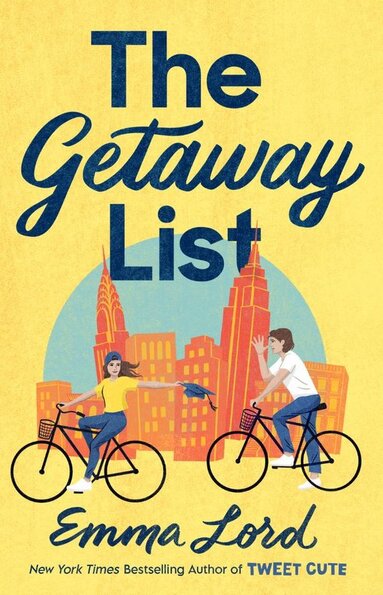 Thanks to partners NetGalley and Wednesday Books for the digital ARC of Emma Lord’s The Getaway List. The book will be published on Tuesday! The Getaway List is Emma Lord’s fifth YA book—I’ve read all five, and I love every single one. Lord has a knack for creating characters who are flawed and real, dealing with difficult transitions in incredibly imperfect—but understandable—ways, and those qualities are all present in this newest novel. It focuses on an often difficult stage: the time right after graduation, when everything is in transition. On page one, Riley Larson is in the midst of the graduation ceremony, in a unique position: she’s the only person in her high school to have been rejected by all ten colleges to which she applied. And now? She’s not really sure what she’s going to do. Riley’s single mom has the plan that she always has for Riley. She’s going to keep her busy, keep her focused, keep her from wandering. So, Riley should get a job and take community college classes until she has a different, mom-approved plan. But Riley isn’t so sure that’s what she wants. After some mild trouble a few years back, Riley’s mother signed her up for a varied and never-ending array of extracurricular activities, leaving her no time just to be . . . or to be with her best friend, Tom. Tom has been Riley’s best friend since they were kids, when their mothers met at an event for single moms and sort of forced the issue of their friendship. But then, that friendship became deep and sincere, a core relationship for each of them, even after Tom and his mother moved to New York City and that friendship was maintained through phone calls and facetime and texting. Since the move, Riley has not been able to see Tom in person, and now seems like the perfect chance for Riley to go to New York (something she’s always wanted to do) and see her best friend. Her mom is REALLY opposed, but Riley is 18, and she makes the choice—unusual for her—to defy her mother and go anyway. That’s the moment this book really begins. Riley reunites with Tom, who is the same guy she’s always known. Sort of. He’s taller and even more handsome. More important, she realizes, he’s become shy and a bit solitary. Back home, Tom had always been the extroverted, friendly glue that held together a bevy of friend groups, but in New York, he’s a loner. So, Riley extends her quick, weekend trip to a longer stay, determined to set up a web of friendships that will buoy Tom even when she returns home. That decision—the decision to stay—sets up a conflict with Riley’s mom and endless possibilities. Oh, friends, I loved this book so much. I teach seniors, so I see how the pressure to do all the things, all the time, can take its toll on students, who are supposed to know exactly who they want to be and exactly what they’re doing for the rest of their adult lives. It’s a lot. Lord deals with that stress so beautifully with Riley, who has been resentful since her mom’s mission began but now finally has the time to stop and really consider what it has meant for her. Riley loves writing, loves creating, loves being around people and building deep friendships and putting together adventures big and small, but she hasn’t had the time to do any of those things because she’s been so busy doing . . . busy things. Now, she has the strong support of Tom again and the leisure time to realize just how much she missed having leisure time. Of course, there are multiple threads that keep this book moving, including the getaway list of the title, which is the list of adventures that Riley and Tom vowed to take the next time they saw each other. There’s also a fantasy book series that they both love, new friends in New York and old friends who move there, too, and an absolutely lovely friends-to-lovers romance that captured my heart. It’s the self-discovery, though, that resonated most for me, that made me cheer for Riley (and for Tom, and for their other friends who are in the same stage of life). It’s the way her relationship with her mother isn’t dismissed but is instead reshaped and reconsidered now that Riley’s out of school (wow, that story hit hard, since I have a high-school junior at home!). It’s the beautiful portrait of beautiful, flawed people who are just beginning their lives and who are making the inevitable, necessary mistakes that it takes to figure out who they are. I can’t recommend The Getaway List enough. 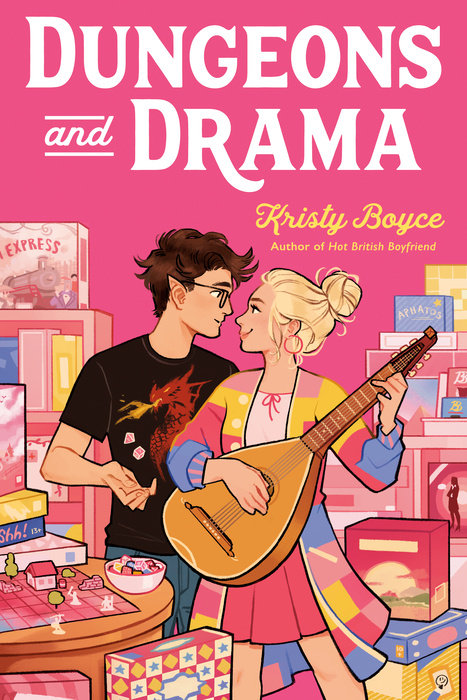 Thanks to partners NetGalley and Delacorte Press for the digital ARC of Kristy Boyce’s Dungeons and Drama. The book will be published on Tuesday! Kristy Boyce’s Dungeons and Drama is a fantastic YA romance, a fake dating story, and a tribute to all things D&D and musical theater. After an ill-conceived (and illegal) trip with her best friend Hoshiko to see Waitress—a trip that involved “borrowing” her mom’s car and driving hours away without a license—Riley is sentenced to a life without extracurriculars, working in her dad’s gaming store every day after school. This punishment is extreme: Riley and her dad haven’t had much of a relationship since her parents’ divorce, she hates gaming, and her extracurriculars are the center of her world. But it’s what she has to do if she wants to be released from her banishment from society in time for the musical, for which she is determined to earn a position as student director. At first, her time at the story confirms all of her fears: she doesn’t understand gaming, the other employee (Nathan) is a jerk, and her relationship with her father is as distant as ever. Her situation begins to change when an awkward run-in with her ex and his new girlfriend leads her to proclaim that she’s also in a relationship . . . with Nathan. What ensues is a quid pro quo with Nathan: he’ll pretend to be her boyfriend to save face with her ex, and she’ll act like she’s head over heels for him as a way to attract his crush, a fellow D&Der who only wants what she can’t have. Soon, those fake feelings begin to feel more real, at least for Riley. I enjoyed so much about Boyce’s world here: she describes the passion of devotees everywhere, finding the commonalities between the worlds of gaming and musical theater as Riley performs her way through a D&D campaign as a bard and Nathan and his friends pitch in to help Riley and Hoshiko save the musical (which the school is trying to cancel). Riley is also working on her relationship with her father, and I appreciated the way each comes to appreciate the other’s passion. As both a big fan of musical theater and the mother of a devoted D&D player, it was fun to see the creativity and passion of both realms represented here. 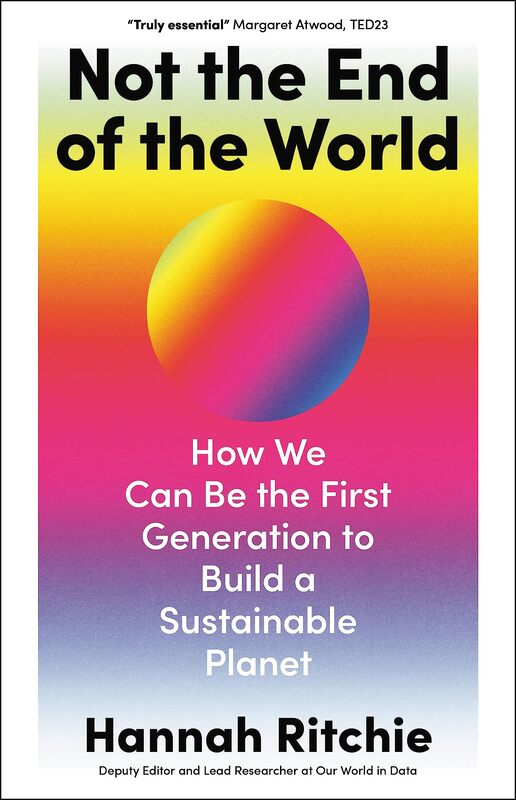 "Many changes that do profoundly shape the world are not rare, exciting or headline-grabbing. They are persistent things that happen day by day and year by year until decades pass and the world has been altered beyond recognition. . . . My job is not to do original studies, or to make scientific breakthroughs. It's to undersatnd what we already know. Or could know if we studied the information we have properly" (5). "Optimism is seeing challenges as opportunities to make progress; it's having the confidence that there are things we can do to make a difference. We can shape the future, and we can build a great one if we want to" (9). Thanks so much to Little, Brown Spark for the advanced copy of Hannah Ritchie's Not the End of the World: How We Can Be the First Generation to Build a Sustainable Planet. This was a revelatory book for me, one that offers an important, optimistic view of the fight against climate change and toward sustainability. Ritchie's viewpoint is not, as she clarifies, one of "complacent optimism." Instead, she advocates for "conditional optimism," the idea that—while the situation facing our civilization is incredibly serious—there has been progress toward a sustainable planet, and there's hope for continued progress in the future. The book's chapters, after the introduction laying out her viewpoint, each take on a different issue (air pollution, climate change, deforestation, food, biodiversity loss, ocean plastics, and overfishing). In each chapter, Ritchie begins with a section "How we got to now," updates "where we are today," and then offers recommendations about what we can do to build on any progress that has been made. She also includes a section on the areas we often worry about that don't make all that much of a difference, systemically. What I loved most about this book is how empowering it is. She never shies away from acknowledging the seriousness of each problem she considers, but she also discusses the ways that false or confusing media narratives have driven us to misunderstand the implications of some statistics (or the statistics themselves). Ritchie never makes light of how difficult some of the changes she recommends will be, but they are eminently realistic. This was just the book I needed to start off the year. I absolutely loved it. 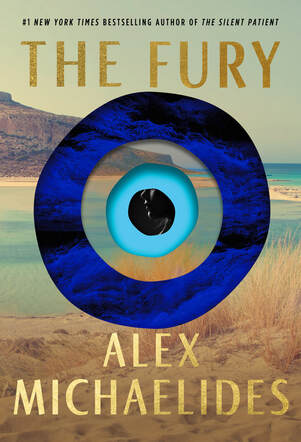 Many thanks to Celadon Books for the ARC of Alex Michaelides's The Fury, which will be out on January 16. The book begins with a murder on an isolated island in Greece, a story told by a screenwriter named Elliot Chase, and a group of people bound by the most tenuous of threads—their allegiance to ex-movie star Lana Farrar. Chase peels back his story in layers, gradually revealing its origins in an unplanned meeting with Lana at a party, delving into her childhood and the ways it reflected his own, and circling around the answers to the questions about the murder: who is the victim? who is the murderer? This was a fast read for me, and while it didn't bring about the same shock I felt during the twists and turns of The Silent Patient, it was still a compelling enough read. 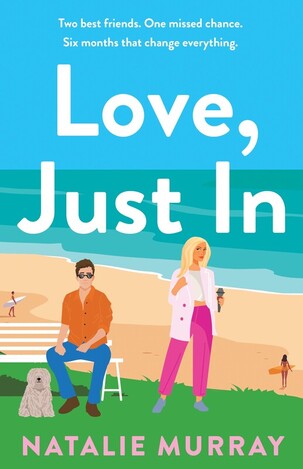 Thanks to partners NetGalley and Allen and Unwin for the digital ARC of Natalie Murray’s Love, Just In. The book will be published on Wednesday! Natalie Murray’s Love, Just In is the strongest friends-to-lovers romance I’ve read in a while. Set in Australia, it features Josie Larsen, a tv news reporter who is trying to earn a promotion to a regular spot on her Sydney news station. After an on-air fumble, she’s moved temporarily to a Newcastle station where her long-time best friend Zac Jameson lives. The problem? She and Zac haven’t talked—not really—for two years, not since a tragedy reshaped Zac’s life and caused his move. So, while Josie is left with the memory of their friendship, which began when, at 13, he became her first friend at her new school, she’s worried that a memory may be all that’s left. Josie and Zac navigate the complexities of renovating a friendship that had always been effortless while balancing career changes and challenges. They’re also each dating other people: Josie is casually seeing Zac’s ex-roommate (Zac is *not* a fan), and Zac has been dating Josie’s direct competition at work. There are hints as to the trauma that caused the rift in their relationship, but Murray takes a while to peel back the layers of that event. Earlier in the plot, however, the author explores Josie’s health anxiety, which is related to the deaths of her aunt and grandmother and is an issue that Josie is contending with throughout the novel. I thoroughly enjoyed the development of Josie and Zac’s relationship, the history of which is revealed in intermittent flashbacks, and I thought the more complicated backstories for both characters were handled with great sensitivity and power. The subtle shift from friendship to romance is revealed beautifully, and I stayed up way, way too late to finish this compelling romance. 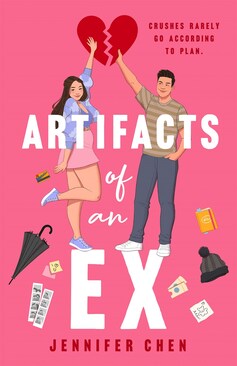 Thanks to partners NetGalley and Wednesday Books for the digital ARC of Jennifer Chen's Artifacts of an Ex. The book is out today! Jennifer Chen’s Artifacts of an Ex is a thoughtful YA romance with a nuanced relationship at its center. Main character Chloe Chang has been dumped via U.S. mail after moving across the country with her family to take care of her ill grandmother. Chloe’s taking out her rage and heartbreak on the box of mementos her ex sent along with the breakup letter when she meets Francesca, who has also recently ended a relationship. As they bond over their stories, Chloe gets an inspiration: a curated art show focused on “Heartifacts,” the artifacts of failed relationships. She puts out a social media request for people willing to share their own symbols of heartbreak. On opening night, Chloe is outraged by Daniel Kwak who is filming his friend’s reaction to one of the pieces, but as Chloe and Daniel talk, they find common ground and a new friendship. Chloe, however, wants more. For Daniel, relationships are perilous ground: he’s been the rebound boyfriend who sends girls back to their exes five times, and he’s not eager to have a sixth such experience. So, Daniel and Chloe vow to keep things friendly, bonding over their art (Daniel is a filmmaker; Chloe sees herself as a curator) and becoming closer as they come to know each other more. As their lives and hearts become more entangled, Chloe has to work through the feelings lingering from her own relationship, and Daniel has to deal with the vulnerability he has to embrace. Artifacts of an Ex is such a thoughtful romance, one that focuses as much on Chloe’s need to understand her own identity as it does on the relationship at its center. Chen’s development of her characters is quite strong, and I thought the consideration of art and its goals for both Chloe and Daniel was an excellent part of the novel. Overall, this was a strong first novel by an author I’ll watch. 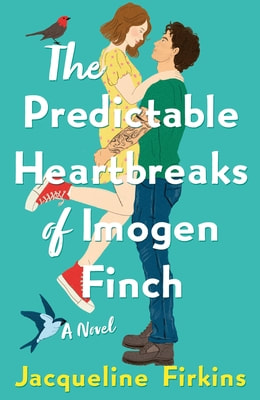 Thanks to partners NetGalley and St. Martin's Press for the digital ARC of Jacqueline Firkins’s The Predictable Heartbreaks of Imogen Finch. The book will be published on October 31! The Predictable Heartbreaks of Imogen Finch is Jacqueline Firkins’s fourth book—I’ve loved every single one of them. Her first two books, How Not to Fall in Love and Hearts, Strings, and Other Breakable Things (a retelling of Jane Austen’s Mansfield Park), are young adult romance novels; the next two, Marlowe Banks, Redesigned and this one, are adult romance. She excels at writing for both audiences—all of these books completely swept me away. What I appreciate most about Firkins’s books is the way she develops her characters. These are real, complex, flawed people with lives outside of the central relationship. Love conquers a lot, but not all, and sometimes, characters’ lives aren’t in a place where they can embrace love just yet. That dynamic is very much at play here. Imogen Finch has known her whole life that she’ll never be first at anything, even at love. When she was a child, her mother shared this prophecy, and now, 20+ years later, it has proven to be true: Imogen’s heart has been broken 17 times, and she has lost at everything she’s ever tried to do: every game, every contest, every election. She’s never been higher than second. The heartbreak started with her first crush, Eliot Swift, who is also one of her two best friends, though she hasn’t heard from him since he left a decade ago. When he returns for his estranged father’s funeral, however, Eliot decides that he’s going to help Imogen break her losing streak. The premise is fun enough, but it’s these people, these characters, who resonated with me. Imogen loves her mother dearly and has committed to caring for her in her childhood home, despite the dreams she once had of being an artist and living in the city. Imogen’s mother’s eccentricities mean that she can’t keep a job, so Imogen has cobbled together several, waiting tables and walking dogs and working at the hardware store, while her mom pursues her need to see and share the future. Eliot has wandered since he left, seeking adventure and amassing millions of YouTube followers for his channel, The Un-lonesome Wanderer, which details his travels around the globe. Though his life strikes many as glamorous, he’s also escaping the wealth and privilege and confining expectations that his parents gave him instead of affection. As Imogen and Eliot and their best friend Franny re-forge their friendship, they also begin to share the truths that they had held back as teenagers, and Imogen starts to come to terms with the decisions she’s made and the part she has played in living out her mother’s prophecy. I love the friends’ conversations, the ways that they show their friendship and affection for each other, and the ways that they both accept each other and encourage each other to grow. Watching Imogen navigate the return of her very first heartbreaker is a beautiful journey. This book confirmed, once again, that I will read absolutely everything Jacqueline Firkins writes. |
AuthorI'm Jen Moyers, co-host of the Unabridged Podcast and an English teacher. Archives
July 2021
Categories
All
|
Proudly powered by Weebly
 RSS Feed
RSS Feed